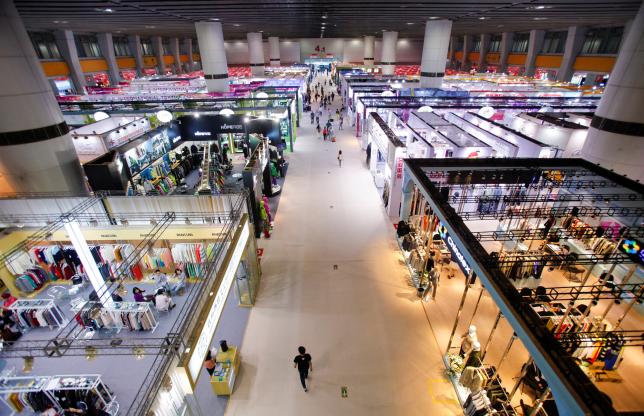China’s merger watchdog gets tough on clearance dodgers

HONG KONG - A week after China's two largest taxi-hailing firms announced plans for a $35 billion (27 billion pounds) merger, lawyers say China's merger control watchdog is cracking down on companies that don't seek approval for deals, and it wants greater powers to punish them.
Last Tuesday the Ministry of Commerce (MOFCOM) antimonopoly bureau took the unusual step of revealing that taxi operator Didi Chuxing had not yet sought clearance to buy rival Uber China's assets but would need to if the deal met its thresholds - which was widely interpreted more as an order than a statement.
It is not yet clear if the deal breaches MOFCOM's thresholds or if a clearance application has been filed. “We are in close communication with the authorities," a Didi spokesman said. Lawyers said companies sometimes fail to file due to ambiguity over how the revenue or control thresholds apply to certain structures, or because the deal is on the borderline.
There is debate over whether Didi should include driver payments in its revenue calculation, which could push the deal over MOFCOM's thresholds. Others, however, hope to dodge the MOFCOM review process, which has a reputation for being slow and opaque, fearing delays may kill the tie-up.
"Some players do not have the knowledge, but some companies deliberately avoid filing, including some state-owned enterprises, as it can be quite a lengthy and uncertain timetable," said Liyong Jiang, partner at Gaopeng & Partners and a former MOFCOM legal official. But MOFCOM's patience appears to be wearing thin.
Over the past 12 months, it has stepped up enforcement against such "gun-jumping", naming, shaming and fining a total of 11 companies, including Microsoft (MSFT.O), Canada's Bombardier (BBDb.TO) and Japan's Hitachi (6501.T), in relation to eight deals that were not filed.
Transactions must be notified to MOFCOM before closing if the merging companies' combined global turnover in the previous year exceeded 10 billion yuan ($1.5 billion) or their combined China income exceeds 2 billion yuan.
In May, MOFCOM said it fined Bombardier and China's New United Group for deliberately failing to notify a 2015 joint venture because a delay might have prevented the new entity from participating in a railway project tender. It was the second time MOFCOM had fined Bombardier for gun-jumping.
Jianwei Zhang, president of Bombardier China, said the timing of the deals and the tender bidding process was complicated by the involvement of multiple regulators. He added that Bombardier cooperated fully with MOFCOM and was satisfied with its decision.
MOFCOM did not respond to requests for comment. "Companies making a joint tender bid have faced serious difficulties: if they sought antitrust approval, incorporation of the JV could be delayed and the opportunity might be gone by the time approval came," said Adrian Emch, a partner at Hogan Lovells. "An alternative would be not to file, but this might breach the law. Damned if you do, damned if you don't."
HIGHER PENALTIES
Over the past 18 months, MOFCOM has significantly improved its review process, with 75 percent of deals now going through a simplified procedure that takes on average 29 days, according to data compiled by Norton Rose Fulbright.
Antitrust lawyers say this is encouraging more would-be gun-jumpers to file and has also freed up watchdog staff for investigative work. "The new procedure has allowed MOFCOM officials to focus on more substantive matters, including enforcement against noncompliance," said Marc Waha, head of the Asia antitrust practice at Norton Rose Fulbright.
MOFCOM can force gun-jumpers to dispose of assets or unwind transactions but has so far been reluctant to use these measures if the transaction does not ultimately pose competition concerns.
The regulator has preferred instead to issue public financial penalties. It is not the fine itself - capped at just 500,000 yuan - that is causing companies to think twice before skipping a filing, but the reputational damage.
"Because the statutory maximum fine is very low, MOFCOM decided to start 'naming and shaming' noncompliant parties in late 2014," said Waha. "MOFCOM officials remain frustrated, however, with some parties thinking the low sanctions are worth taking the risk, and have publicly advocated for an increase in these sanctions when China's Antimonopoly Law is revised."
China has scheduled a review of the law but it is not clear how long this might take or what any new maximum fine might be. In the meantime, lawyers expect more enforcement action, not least because rivals are increasingly prompting the regulator to scuttle deals.
Ride-hailing firm Yidao Yongche last year complained to MOFCOM about Didi's previous takeover of rival Kuaidi Dache. "A number of the cases which have been sanctioned by MOFCOM appear to have been brought to MOFCOM’s attention by third parties," said Mark Jephcott, head of the Asia competition practice at Herbert Smith Freehills. "This is another reason for companies to stay on their toes." -Reuters







